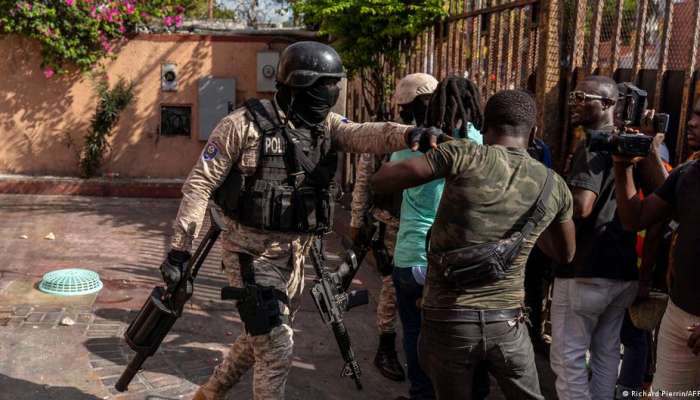
Port-au-Prince: The US and Canada on Saturday delivered security equipment to Haiti, including armoured vehicles, to help the impoverished country deal with the spreading security and health crises.
US and Canadian air force planes landed in Port-au-Prince carrying "vital Haitian government-purchased security equipment, including tactical and armoured vehicles," a joint statement from the two governments said.
"This equipment will assist [local police] in their fight against criminal actors who are fomenting violence and disrupting the flow of critically-needed humanitarian assistance, hindering efforts to halt the spread of cholera,'' the statement said.
The request for help from Haiti came as a cholera epidemic worsened and armed gangs occupied vast tracts of land, including the country's largest fuel import terminal.
United Nations Secretary-General Antonio Guterres has called on member states to deploy a "rapid reaction force" to Haiti to deal with "a dramatic deterioration in security." But Washington has made it clear that it is reluctant to send troops to Haiti.
Protests against a fuel price hike
The American and Canadian equipment arrived more than a month after one of Haiti's most powerful gangs surrounded a fuel depot and demanded the resignation of Prime Minister Ariel Henry.
Demonstrators have also blocked roads in major cities to protest sharp increases in fuel prices after Henry announced on September 11 that his government could no longer afford to subsidize fuel.
Since then, gas stations have closed, hospitals have reduced services, and banks and grocery stores have had limited openings as fuel, water and other supplies dwindle across Haiti.
Owners of the fuel terminal announced Saturday that gunmen had attacked their facilities for a second time and fled with more than 28,000 gallons of petroleum products after overpowering the facility's surveillance and rescue personnel.
Looming cholera crisis
The UN last week also warned of a possible explosion of cholera cases in Haiti, with 32 confirmed and 224 suspected cases as of October 8, according to the World Health Organization.
Those are the country's first cases in three years. Nearly 10,000 people died during a cholera epidemic in Haiti between 2010 and 2019.
Haiti was mired in political and economic crisis for years before the assassination of President Jovenel Moise in 2021 exacerbated its instability and the increasing influence of gangs.